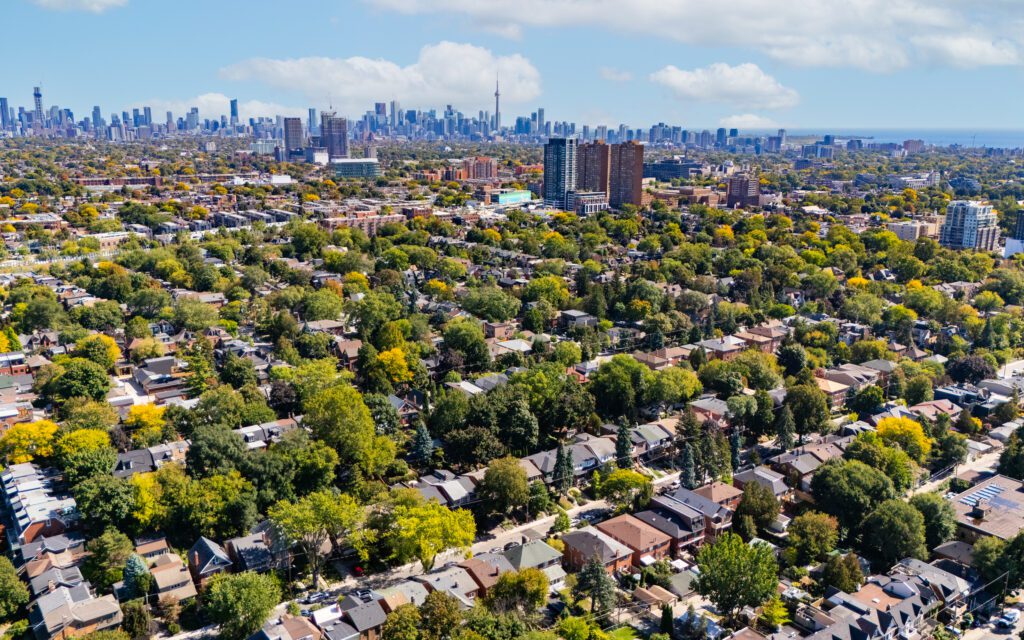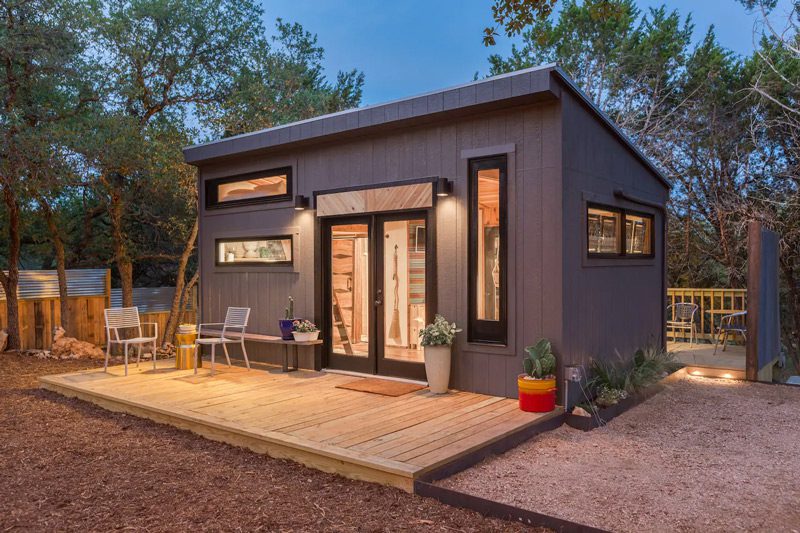What’s The Difference? Deposit vs. Down Payment on a House
06/30/25

Buying a home is exciting, but the details can feel overwhelming. If you’ve ever hesitated during a conversation about deposits and down payments, you’re not alone.
These terms are often used interchangeably, but they mean very different things. Understanding the distinction is one of the first steps to feeling confident in your decision-making, especially in fast-moving west Toronto markets like Bloor West Village or the Junction Triangle.
A deposit is the amount you include with an offer to show the seller you’re serious. It signals good faith and commitment. On the other hand, a down payment is the portion of the home’s purchase price you pay upfront at closing, reducing the amount you’ll need to borrow.
Although they sound alike, ‘deposit’ and ‘down payment’ are not interchangeable. They differ in timing, purpose, and how they factor into your home financing.
Let us shed some light on the topic so you can move forward confidently. And if you’re ever unsure how much to set aside or when to pay, the Smith Proulx Team is here to help you plan your next steps with clarity.
What is a Deposit?
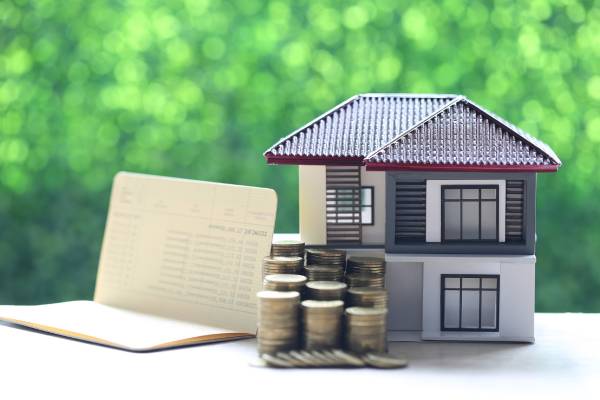
A deposit is the money you include with your offer to buy a home. It shows the seller you’re serious and financially ready to move forward. In competitive markets like High Park or Runnymede, a strong deposit can help your offer stand out.
This payment is usually made by certified cheque, bank draft, or wire transfer and is held in trust by the seller’s brokerage. If your offer is accepted, the deposit stays in that trust account until closing, when it’s applied to your total home purchase cost.
Deposits are typically non-refundable unless your offer includes specific conditions that allow you to walk away. That’s why it’s important to understand the terms before signing. As your real estate agents, we will guide you through the process and help ensure everything is clear.
What is a Down Payment?
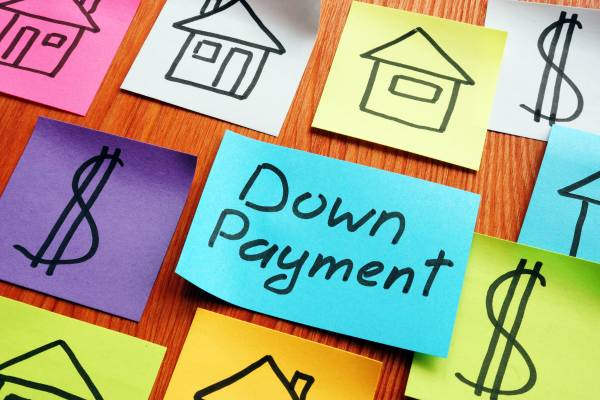
A down payment is the amount you pay upfront toward the purchase of your home. It’s the part of the price you don’t finance through your mortgage. The more you put down, the less you’ll need to borrow—and the lower your monthly mortgage payments will be.
Most down payments in the Toronto market start at 5 percent, depending on the home price. If you’re buying a home in neighbourhoods like Swansea or Baby Point, where property values tend to be higher, you may need to budget for a larger down payment.
If your down payment is less than 20 percent, your mortgage will need to be insured through a provider like CMHC, Sagen, or Canada Guaranty. This insurance protects your lender, not you, in case of missed payments. The premium is based on a percentage of your mortgage and is usually added to the total loan amount.
Your down payment is due on closing day, and it finalizes your commitment to the purchase. It’s the biggest chunk of money you’ll need at once (aside from the mortgage itself), so it’s wise to prepare in advance.
Key Differences Between a Deposit and a Down Payment
Although both are important financial steps in buying a home, deposits and down payments differ in when they’re paid, how much they are, and what they represent.
| Deposit | Down Payment |
|---|---|
| No standard required amount | Typically ranges from 5% to 20% of the purchase price |
| Paid when the offer is made | Paid on the closing day |
| Held in trust until closing | Sent to the lawyer and transferred at closing |
| Shows good faith to the seller | Reduces the mortgage amount |
Your deposit becomes part of your down payment at closing. It’s not an extra cost but a portion of your total payment towards the home.
If you’re unsure how much to offer for a deposit—or how it fits into your overall budget—connecting with an experienced local team can make a big difference. The Smith Proulx Team helps buyers in west Toronto align their offers with market expectations and financial readiness.
Looking for more insights and helpful tips? Subscribe to get these delivered straight to your Inbox!
Amount of Down Payment vs. Deposit
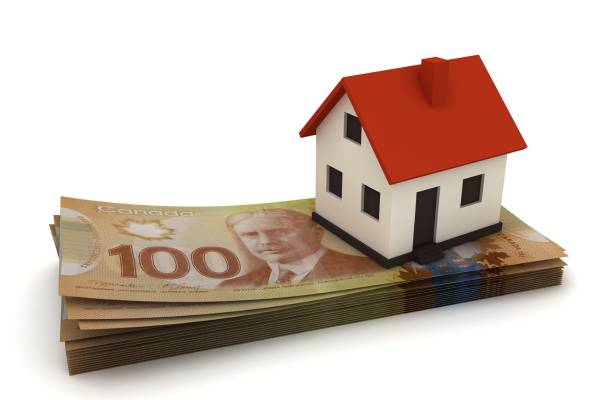
The deposit amount can vary widely depending on the situation. There’s no set rule in Ontario, but higher deposits often make your offer more appealing to the seller. In popular neighbourhoods, a 5 percent deposit is common, but your real estate agent may recommend a different amount based on local conditions.
Down payments, on the other hand, are governed by federal guidelines:
| Home Price | Minimum Down Payment |
|---|---|
| Below $500,000 | 5% of the purchase price |
| $500,000–$999,999 | 5% of the first $500,000 + 10% of the remainder |
| $1,000,000 or more | 20% of the purchase price |
Other factors also influence your down payment amount, including your credit history and employment status. If your down payment is less than 20 percent, mortgage default insurance will be added to your mortgage amount. This ranges from 0.6% to 4.5% of the mortgage and protects your lender in case of missed payments.
Before approving your mortgage, the lender will appraise the property’s value to ensure it aligns with the amount you’re borrowing. This can affect both your mortgage approval and the size of the down payment required.
If you’re planning to buy in a competitive west Toronto market, having a clear deposit strategy and down payment plan can give you an edge.
Timing of Down Payment vs. Deposit
The deposit is paid upfront, typically within 24 hours of accepting the offer. It’s sent to the listing brokerage and held in trust until closing. In areas like the Junction Triangle, where multiple offers are common, being ready to provide a quick deposit shows sellers you’re serious.
The down payment comes later, on your closing day. That’s when you pay the remaining balance of your purchase (after deposit and mortgage funds are subtracted). Your lawyer handles this transaction, ensuring all funds are transferred properly.
If your deal doesn’t close due to an issue on your end, you may forfeit your deposit. Some agreements include a clause for a refund under certain conditions, but not all do. That’s why it’s important to understand your contract before signing anything.
Under Ontario’s Real Estate and Business Brokers Act (REBBA), your deposit is legally required to be held in trust and applied toward your down payment at closing.
Preparing both deposit and down payment funds in advance helps avoid stress later. Working with a knowledgeable local team like Smith Proulx can help ensure everything is ready when the time comes.
Builder Deposit vs. Down Payment
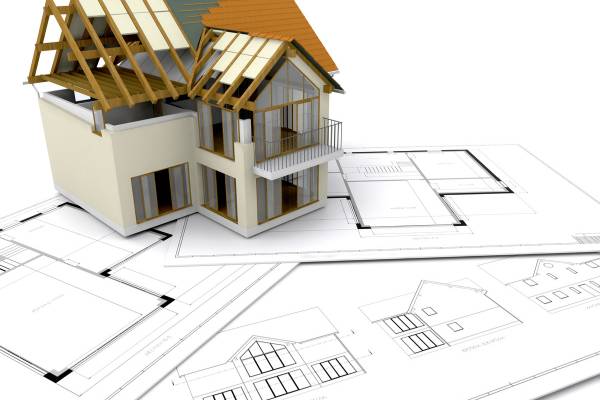
A builder deposit applies when you buy a pre-construction home directly from a developer. This deposit is paid in stages and helps the builder fund the early phases of construction. Unlike resale deposits, builder deposits are often larger and spread out over time.
Here’s how they usually work:
- Initial deposit when you sign the agreement (5–10%)
- Additional payments at key construction milestones (e.g., foundation completion)
- Final instalment before closing
Builder deposits aren’t held in the same trust account as resale home deposits. Instead, they’re paid directly to the developer. This means they’re often non-refundable unless your contract includes specific conditions.
| Builder Deposit | Standard Deposit | Down Payment |
|---|---|---|
| Paid directly to developer | Held in trust | Paid to lawyer at closing |
| Paid in stages | One-time payment | One-time payment |
| Finances construction | Shows serious interest | Reduces mortgage |
| Often non-refundable | Sometimes refundable | Finalises purchase |
If you’re buying a new build in an area like Runnymede or Bloor West Village, factor these staged deposits into your overall savings plan. They contribute to your down payment but must be available earlier. A down payment calculator can help you stay on track.
And if you’re feeling uncertain about timelines or payment schedules, your real estate team should be your first call. The Smith Proulx Team can walk you through each step so there are no surprises along the way.
Final Thoughts

Understanding the difference between a deposit and a down payment is crucial when buying a home. These two financial elements play distinct roles, each affecting your buying strategy, timing, and cash flow.
Being financially prepared can ease much of the stress of home buying, especially in competitive markets like West Toronto. Whether you’re planning to buy a resale in High Park or a pre-construction unit in Swansea, knowing when and how to pay your deposit and down payment makes the entire process smoother.
If you ever need help working out the numbers or understanding what’s standard for your price point and location, a quick chat with a local expert can go a long way. That’s where a team like Smith Proulx can make the process less overwhelming and a lot more rewarding. Call us at 416-769-6050 or contact us for more details.
Frequently Asked Questions
What is the difference between a deposit and a down payment in real estate?
A deposit is a good-faith payment submitted with your offer to buy a home. A down payment is the larger sum paid at closing that reduces your mortgage amount. The deposit becomes part of the down payment at closing.
How much is a typical deposit for a home in Toronto?
In west Toronto neighbourhoods like Bloor West Village and High Park, deposits typically range from 5% to 10% of the purchase price. The right amount depends on market conditions and seller expectations.
When do I pay the down payment in Ontario?
The down payment is due on the closing day of your home purchase. Your lawyer will transfer the funds, which often come from your savings or your mortgage lender.
Is the deposit refundable if the deal falls through?
A deposit is not automatically refundable. Refunds depend on whether your offer included specific conditions. Without those, the seller may be entitled to keep the deposit if the deal fails.
What is a builder deposit and how is it different?
A builder deposit is paid in stages when purchasing a pre-construction home directly from a developer. It’s often larger, not held in trust, and helps finance the construction—unlike a one-time resale deposit.
Confused about Deposits and Down Payments?
If you ever need help working out the numbers, a quick chat with a local expert can go a long way. We work and live in the area and can make the home-buying process much easier! Let us know what property you're interested in.

